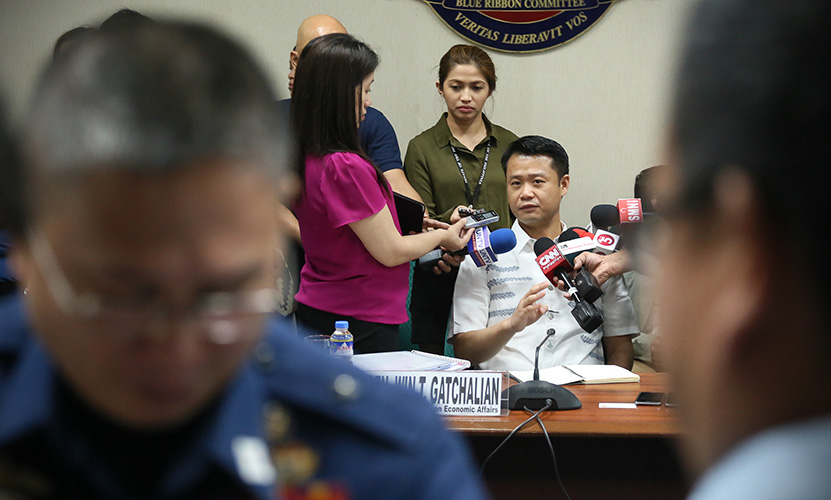
Senator Win Gatchalian on Tuesday vowed to fight for the inclusion of funding for the implementation of the proposed body camera policy for police anti-drug operatives during Senate deliberations on the 2018 national budget.
“The public clamor for greater transparency and accountability in the government’s war on drugs can be immediately addressed by getting the body camera program up and running. The quickest way to do this is to appropriate funds for the program in the 2018 national budget,” said Gatchalian.
The senator stressed that the high cost of procuring and maintaining policy body cameras would require a realistic approach to the initial implementation of the program.
Based on an assessment report released by the U.S. Department of Homeland Security, the standard retail price for police body cameras is between P6,000 to P57,000 per unit. Meanwhile, the storage costs for maintaining the body camera data on file would be tens of thousands of pesos per unit annually, depending on the required period of archiving.
With these budgetary concerns in mind, Gatchalian proposed the prioritization of the Philippine National Police-Drug Enforcement Group (PNP-DEG) and its affiliated local Drug Enforcement Teams (DETs) during the first wave of procurement. The PNP-DEG and DETs are the primary units designated to conduct anti-illegal drugs operations under PNP’s Oplan Double Barrel Reloaded.
Gatchalian said he would request the PNP to provide a detailed report on the number of personnel assigned to drug enforcement units in order to calculate the funding needed. He underlined the controversial P900 million allocation for Oplan Double Barrel Reloaded in the proposed budget as a possible funding source.
“Wherever we need to source the funds, we’ll do it. The police body camera program will provide the Filipino people with immediate protection against police scalawags and their abuses of authority. It deserves to be a budgetary priority,” Gatchalian said.


